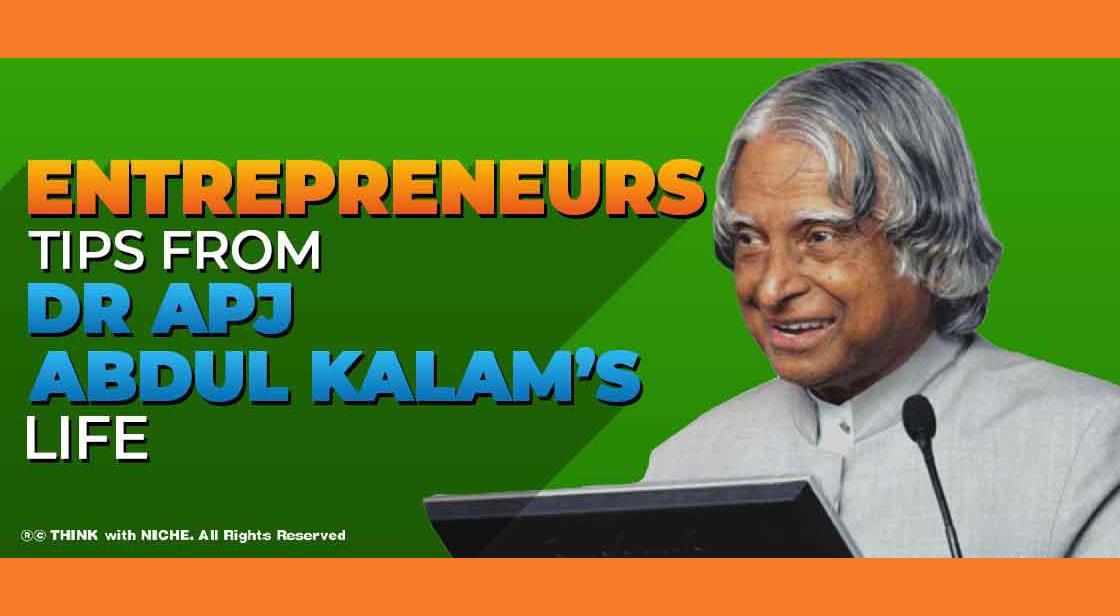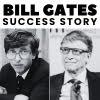Entrepreneurs tips From Dr APJ Abdul Kalam’s Life

Blog Post
For long-term economic development and peace, the nation must practice ethics in all of its endeavors. Society must encourage ethics and value systems if a nation is to have ethics. Great learning, value-based education, and the formation of a clean environment all contribute to parental ethics, which leads to righteousness in the heart. #ThinkWithNiche
The life tales of this famous scientist, who is also lovingly referred to as the "Missile Man of India" due to his amazing contribution to India's successful missile development programs, may teach entrepreneurs a lot.
Be entrepreneurial
Kalam never believed in completing routine work and pushed others, particularly the younger generation, to do things differently. He argued that entrepreneurship should be incorporated as a course in India's educational system, which is mainly oriented on rote learning. "My advice, especially to young people, is to have the courage to think differently, courage to invent, courage to travel the uncharted path, courage to discover the impossible, and courage to overcome and triumph," he once stated. These are excellent attributes that they should strive for. It is the message I'm sending to the youth."
Be tenacious
After his long-held ambition of becoming a pilot in the Indian Air Force was dashed, young Kalam gathered his wits and accepted a position with the Ministry of Defense. He persuaded himself that better chances awaited him. "Man needs problems in life since they are vital for him to enjoy achievement," he says.
Be a leader
By leading by example, he inspired others to do the same. Despite the Union Cabinet's opposition, he was able to persuade Indira Gandhi, India's then-Prime Minister, to release funds for aerospace programs under his direction in the 1980s. These programs aided the expansion of India's space exploration program. "Let me explain what a leader is. He must be visionary and passionate, and he must be unafraid of any challenge. He should instead know how to defeat it. He must, above all, labor with integrity." Indeed, his final comments were about the characteristics that made a successful leader.
Be a dreamer
The Union Government approved a budget of Rs. 388 crores for the Integrated Guided Missile Development Program (IGMDP) under Dr. Kalam's leadership. The program ran for 15 years, beginning in 1982-83. Following the test launches of Prithvi and Agni in 1988 and 1989, the western world prohibited access to any technology that could aid India's missile program. Undaunted, Kalam continued with his dream program, which pushed India to develop key technology on its own. True entrepreneurs have huge ambitions and work hard to make those dreams a reality. "Before your dreams can come true, you must first dream."
Be responsible
An accident occurred at Arakkonam, Chennai, on January 11, 1999. A plane crash killed the entire crew of eight men during one of the test flights for an underdeveloped aviation surveillance system. Dr. Kalam felt the pressure of being accountable for someone else that day. We lead teams as entrepreneurs. It can be difficult to lead a group. Sharing achievement and taking responsibility for failure can be even more difficult. "Pretend to be a moth, not a candle." "Understand the power of service."
Be ready to push your boundaries
Kalam was told by his professor at MIT when he was a young student that if he didn't recreate an aircraft design from scratch, he would lose his scholarship. Furthermore, he was allowed only three days to complete a task that should have taken weeks. He came up with a design that earned him praise from the same professor through sheer determination. In a "succeed or die" atmosphere, entrepreneurs face seemingly impossible tasks with tight deadlines. The important thing is to put in the effort and work toward a solution. "There is no such thing as a deadline that cannot be met."
Conclusion
"The names of the people who dreamed the unthinkable are imprinted in our history in every sphere of human endeavor, whether science, health, athletics, art, or technology," he continues. He elucidates his point with the help of luminaries such as CV Raman, Isaac Newton, Albert Einstein, and Chandrasekar. To become an innovator, you'll need a creative mind that's always working and contemplating the possibilities.
You May Like
EDITOR’S CHOICE












